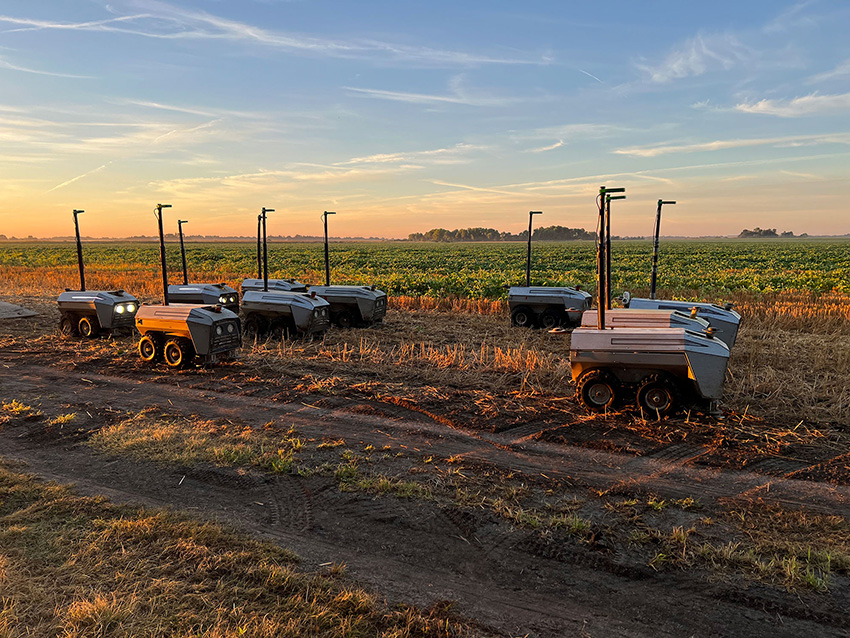Robot weedkillers could help farmers reduce need for pesticides

Published: August 12, 2024
Category: Pesticides
The unassuming yellow (4 ft. x 2 ft.) battery-powered locomotive is a welcome sight to Clint Brauer, whose Kansas company Greenfield builds and programs the robots. The mobile chopper slices the weeds as it putters down rows of crops.
For Brauer, a former tech executive who returned home following his father’s illness, the robots are problem solvers. They eliminate both weeds and agricultural dependence on dangerous chemicals harmful to the environment and human health. This season, 20 farmers are enrolled in the robotic service—the company’s goal is to weed 5,000 acres this year.
Weeds, a perennial bane, steal moisture from crops and sometimes sunlight. Reliance on pesticides to kill them brings dangers: glyphosate has been linked to cancer and paraquat to Parkinson’s disease, and atrazine is harmful to reproductive health.
Investment money is pouring in—Chipotle Mexican Grill invested in Greenfield, which has raised $12 million. Aigen Robotics of North Dakota used part of its $19 million investment to build robots powered by solar panels and operating autonomously. Fifty Aigen robots are currently battling sugar beet field weeds in the Midwest. Bayer is also showing an interest in robots.
But are robots a practical solution? Regenerative agriculture proponents say soil health, crop planting with ground cover, and non-disturbance of soil will work just as well for weed suppression. Wisconsin farmer Ryan Erisman says, “It’s not our tools, our techniques that needs reworking. It is our failure to understand the system we are working in and our relationship to it.”
Source: The Guardian, Carey Gillam, U.S. Right to Know
To view source article, visit:
https://www.theguardian.com/environment/article/2024/jul/20/robot-weedkillers-pesticides
Organic & Non-GMO Insights August 2024




